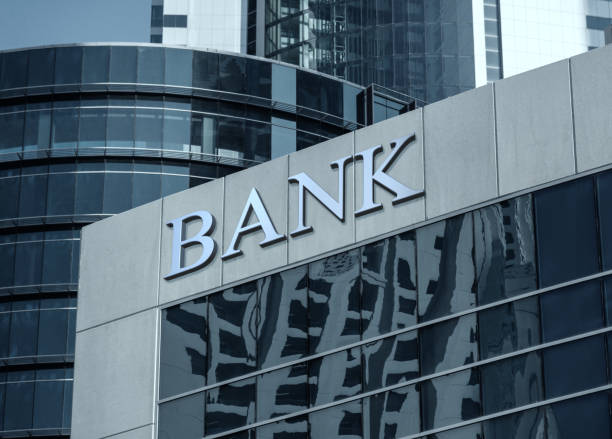Acquiring a loan in the UAE can be significantly challenging if you have a low credit score. Credit scoring essentially dictates your creditworthiness to lenders, and having a poor score might often lead to rejection or higher interest rates. However, there are still avenues to explore if you find yourself in need of financing, despite a low credit score. This article aims to guide individuals through the process of securing loans by dissecting the role credit scores play, examining loan options, and outlining practical steps to increase the odds of loan approval. With a focus on the UAE’s lending landscape, we delve into strategies suited for those with less stellar credit reports.
The Importance of Credit Scores in UAE Loan Approvals
What is a Credit Score and How is it Calculated in the UAE?
A credit score in the UAE is a numerical representation of your creditworthiness predicated on past financial behavior. It considers factors such as payment history, credit cards usage, personal loans, and other forms of credits. Credit bureaus compile this data to create credit reports, which lenders then use during credit checks to assess risk. A score generally ranges between 300 and 900, with a higher score indicating lower risk to lenders.
The Impact of a Low Credit Score on Borrowing Options
Having bad credit might not completely shut the door on borrowing, but it certainly narrows your options. Lenders might view you as a high-risk borrower, which could affect loan amounts, interest rates, or even the possibility of outright rejection. The implications of a bad credit score in the UAE can extend beyond personal loan applications, potentially affecting credit card approvals and mortgage offers.

Exploring Loan Options with a Low Credit Score
Types of Loans Available for Borrowers with Poor Credit
Even with a low credit score, certain types of loans could still be within reach. Some lenders might offer personal loans specifically tailored to individuals with bad credit. These loans often come with higher interest rates or require a guarantor. Additionally, payday loans or cash advances are options, though they carry even steeper rates and fees.
Understanding Collateral and Secured Loans
One viable option for those with a bad credit score is to opt for a secured loan. This involves pledging assets as collateral, which can help decrease the perceived risk for lenders and potentially lead to more favorable loan terms. Examples include home equity loans or securing loans against other tangible goods.
Exploring Non-Traditional Lenders and Islamic Finance
Besides traditional banks, there are non-traditional lenders that might offer more lenient credit checks. In addition, Islamic finance institutions provide Shariah-compliant financing which doesn’t rely on interest rates and may have different criteria for loan approvals, sometimes accommodating those with lower scores.
Steps to Increase Loan Approval Chances
Improving Your Credit Score: Long-Term Strategies
Boosting your credit score is a strategic move that not only increases the likelihood of loan approval but can also secure you lower interest rates. Paying bills and existing loans on time, maintaining low credit card balances, and being prudent with new loan applications can gradually improve your credit standing.
Building Strong Relationships with Lenders
Building a positive history with a bank or lender can improve your chances of securing a loan. This means being an active customer, using their financial products responsibly, and possibly holding savings or investments with them, signaling trust and responsibility.
Providing Additional Documentation and Guarantees
Demonstrating financial stability through additional documentation such as proof of income, employment status, or assets can persuade lenders to overlook a less favorable credit score. Offering a guarantee from a third party or opting for a co-signer can also be persuasive.

Tips for Managing Loans with a Low Credit Score
Setting Realistic Repayment Plans
It is essential to set up realistic repayment plans that you can adhere to. Defaulting on a high-interest loan obtained with a bad credit could further damage your credit profile. It’s wise to work out a budget to ensure timely repayment and to communicate openly with your lender should you face hardship.
The Importance of Reading the Fine Print
Before committing to any loan agreement, diligence is key. Terms and conditions regarding loan amounts, repayments, fees, and charges must be thoroughly reviewed to avoid any unpleasant surprises that might result in financial strain.
How to Avoid High-Interest Trap Loans
While options for those with bad credit scores may appear limited, it is crucial to steer clear of predatory lenders that capitalize on borrower desperation. Shop around for better rates and terms, and strive to understand the full spectrum of fees associated with any loan.
Relevant Data on Credit and Loans in UAE
The table below showcases the common loan types available in the UAE, along with typical interest rates charged based on credit scoring:
| Loan Type | Good Credit Score (300 – 700) | Low Credit Score (300 – 500) |
|---|---|---|
| Personal Loan | 3-7% | 14-20% |
| Auto Loan | 2-5% | 10-15% |
| Mortgage | 2.99-5% | 4-8% |
| Payday Loan | Not Applicable | 100%+ |

Conclusion
Sealing a loan deal when you’ve got a low credit score may seem daunting in the UAE, but understanding the intricacies of the credit system and navigating smartly can make it achievable. Keep in mind that rebuilding your credit should be the cornerstone of your financial strategy. Careful scrutiny of loan offers, personal discipline in financial management, and a comprehensive approach to credit building can alleviate the pressures of bad credit and open up a path to financial recovery and stability.
Frequently Asked Questions
Q1: Can I get a personal loan in the UAE with a bad credit score?
A1: Yes, it’s possible to get a personal loan with a bad credit score in the UAE, but the options may be limited. Consider non-traditional lenders, secured loans, or those that require a guarantor.
Q2: How can I improve my chances of getting a loan with a low credit score?
A2: To improve your chances, work on building a good relationship with your bank, provide additional documentation to prove your ability to repay, consider a co-signer or guarantor, and demonstrate a steady income.
Q3: Are interest rates higher for low credit score loans in the UAE?
A3: Yes, generally, loans granted to individuals with low credit scores come with higher interest rates due to the increased risk perceived by the lender.
Q4: What steps can I take to improve my credit score in the UAE?
A4: To improve your credit score, ensure timely payments of bills and existing loans, reduce debt levels, avoid multiple loan applications within a short period, and regularly check your credit report for accuracy.
Q5: Is Islamic finance an option for someone with a low credit score?
A5: Islamic finance can be an option since it operates on different principles than conventional banking. However, Islamic financial institutions also consider creditworthiness, and terms may vary based on your financial profile.


